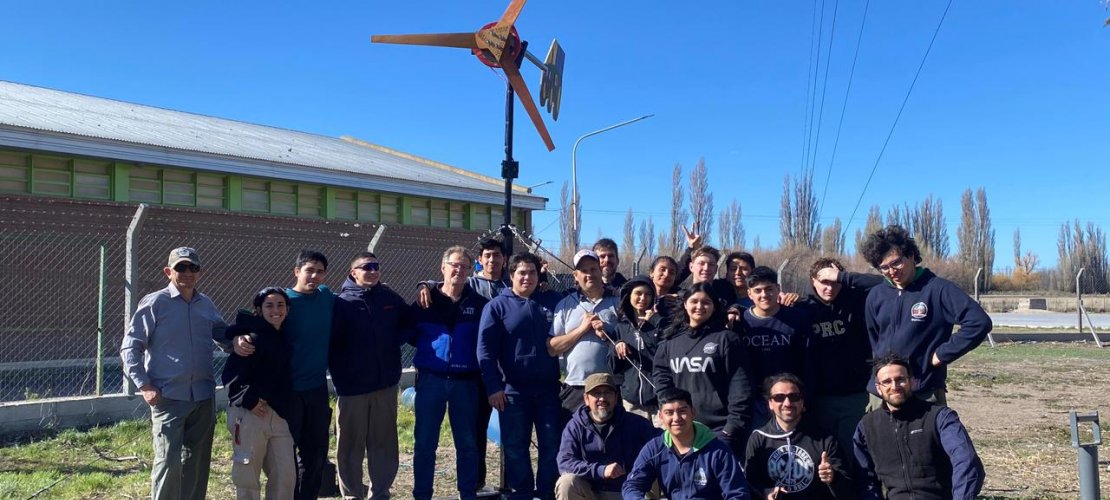The push for renewable energy in family farming continues with the second training course in wind turbine construction

Gaiman, September 4, 2024 – This week, the Agrotechnical School No. 733 of Gaiman became the center of a transformative project that seeks to integrate renewable energies into family agriculture in Chubut. On this occasion, 25 teachers and students participated in practical training that culminated in the construction of a wind turbine, which will be installed on the property of a local producer.
This activity is part of the project “RedER Chubut: Fair and Inclusive Energy Transition of Family Agriculture”, led by Fundación 500RPM in collaboration with Fundación Patagonia Natural and the Ibero-American Union of Municipalists. The project is co-financed by the European Union and aims to promote the use of renewable energies in family agriculture by manufacturing 24 wind turbines in different technical schools in the region.
"We are very excited by the response of young people and teachers in this second training. The construction of wind turbines is not only a practical tool, but also a paradigm shift in how the role of family farming in the energy transition is perceived," said Luciana Proietti, co-founder and president of Fundación 500RPM.
RedER Chubut focuses on three key pillars: Production, Education and Governance. In the area of production, the Frutillas del Viento project stands out, which promotes sustainable horticultural practices in collaboration with INTA in Esquel. In the field of education, students and teachers have been trained for the construction and maintenance of wind turbines, fostering a direct link between new generations and renewable energy. In addition, in terms of governance, work is being done on the formulation of public policies that promote the adoption of these technologies in family farming. Frutillas del Viento has been growing strongly, incorporating 12 new producers from the province this year.
José María Musmeci, president of the Patagonia Natural Foundation, highlighted: "This project strengthens our strategy to confront climate change through sustainable production and technical education, consolidating the region's leadership in renewable energy." For her part, the coordinator of territorial offices of the UIM for Latin America and the Caribbean, Edna Guidi, stated: "Our contribution to the project has to do with working together with local governments to achieve the formulation of a basis for public policies related to renewable energy for family farming that can truly favor and support development in the province."
With this second training, the RedER Chubut project continues to advance in its mission of creating a sustainable, fair and inclusive future for family farming in the province of Chubut, laying the foundations for an energy transition that actively involves local communities.
